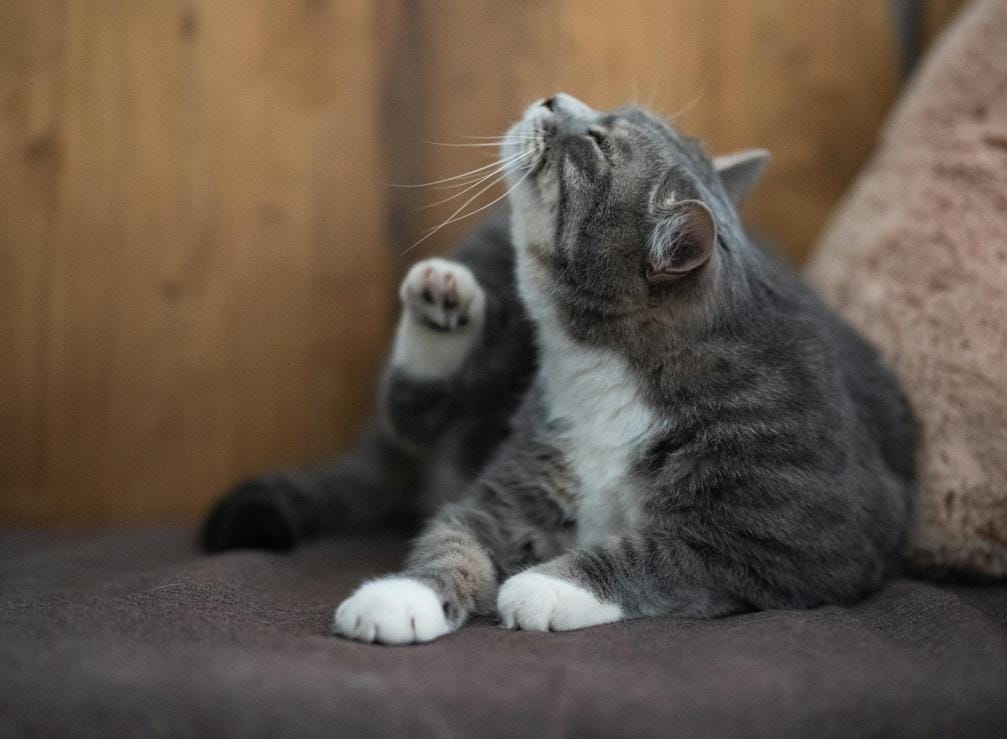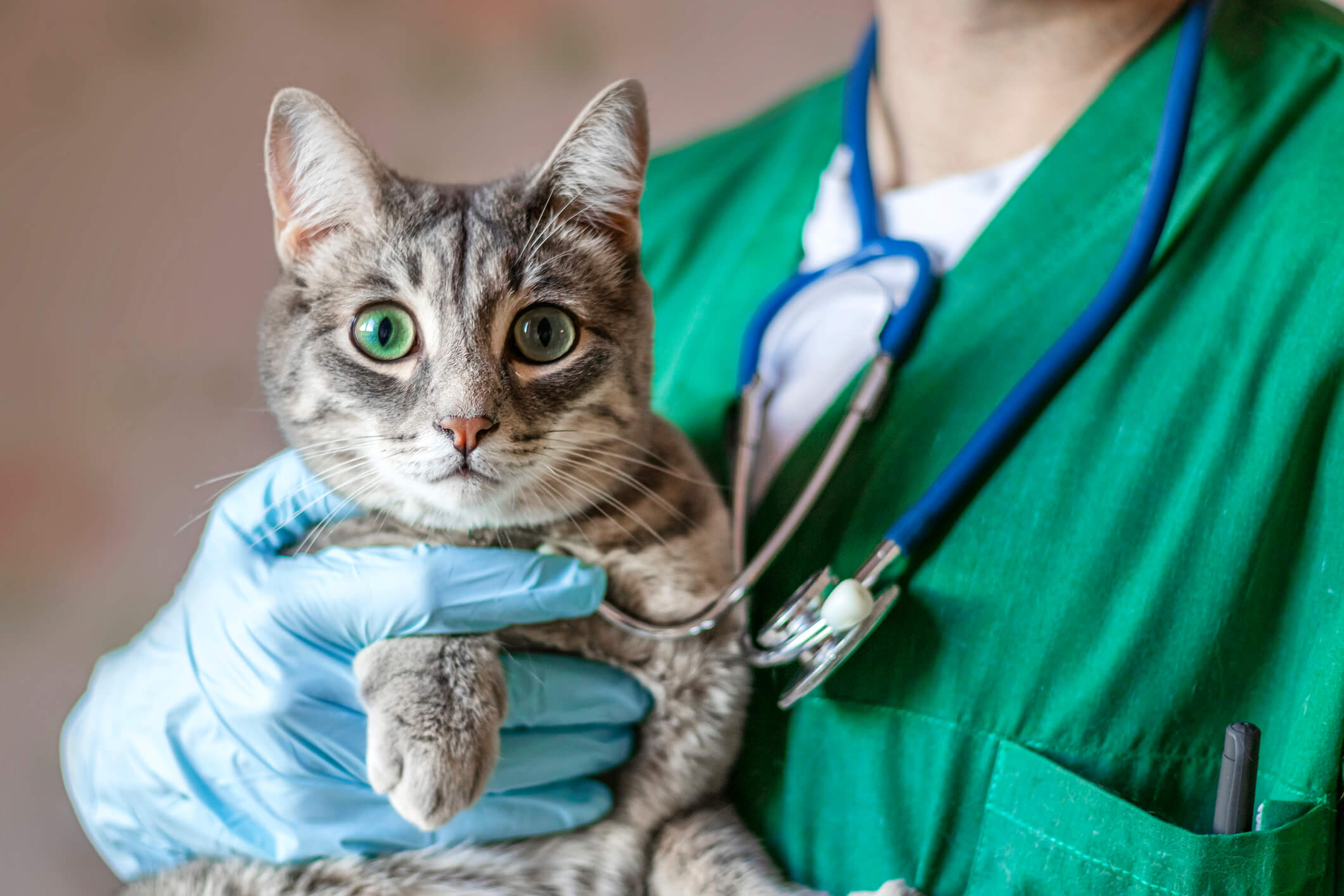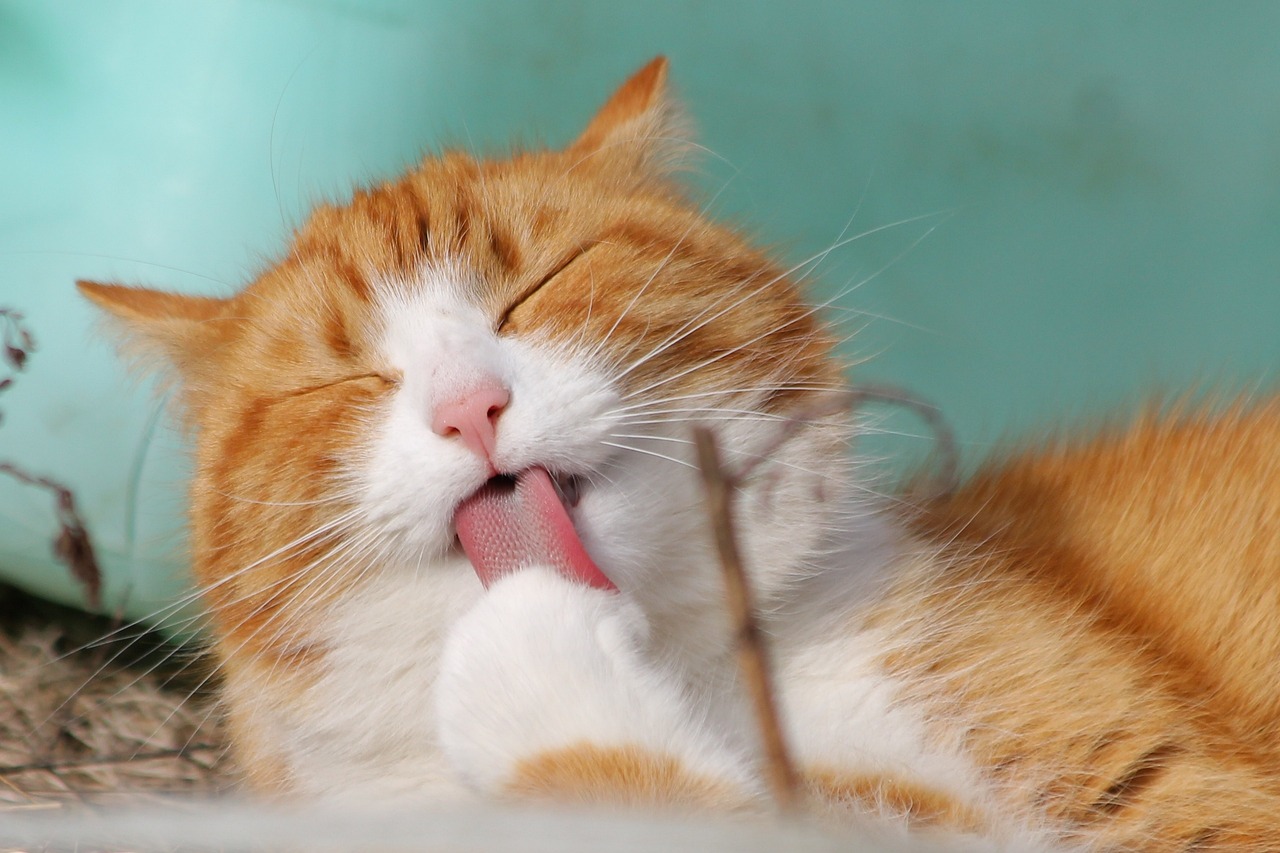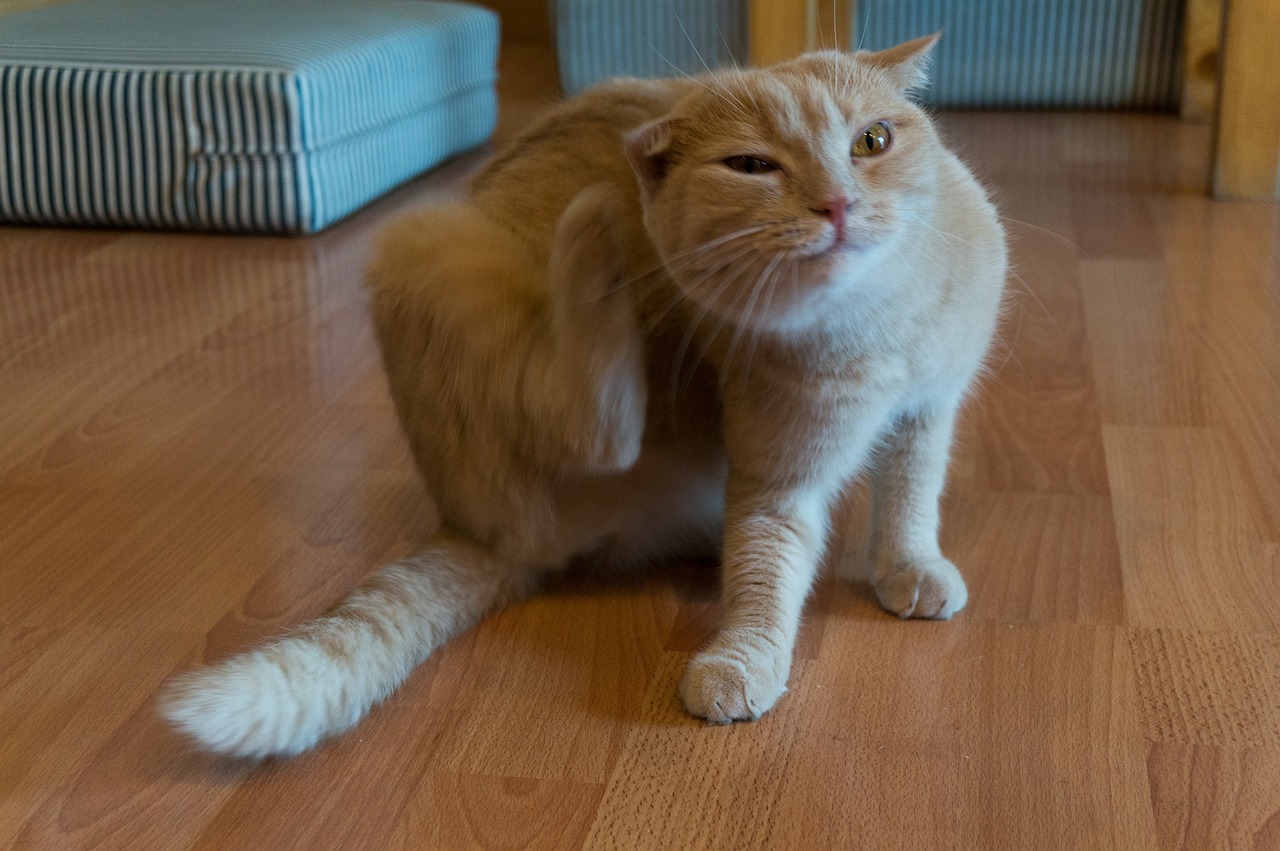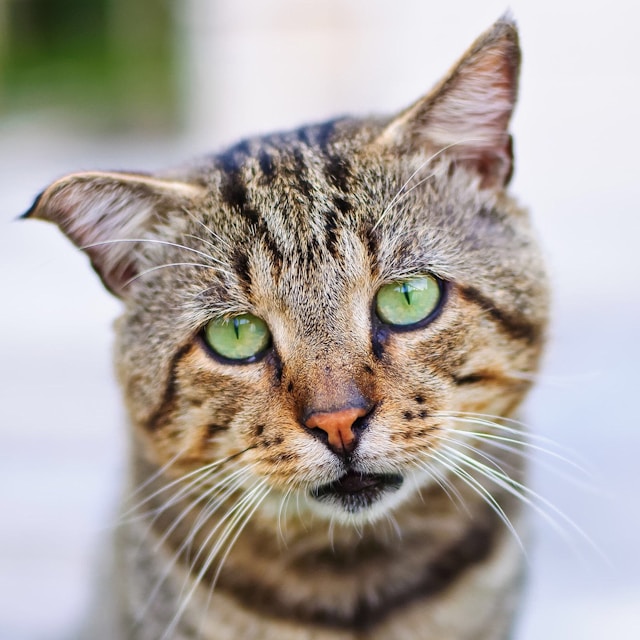Abyssinian
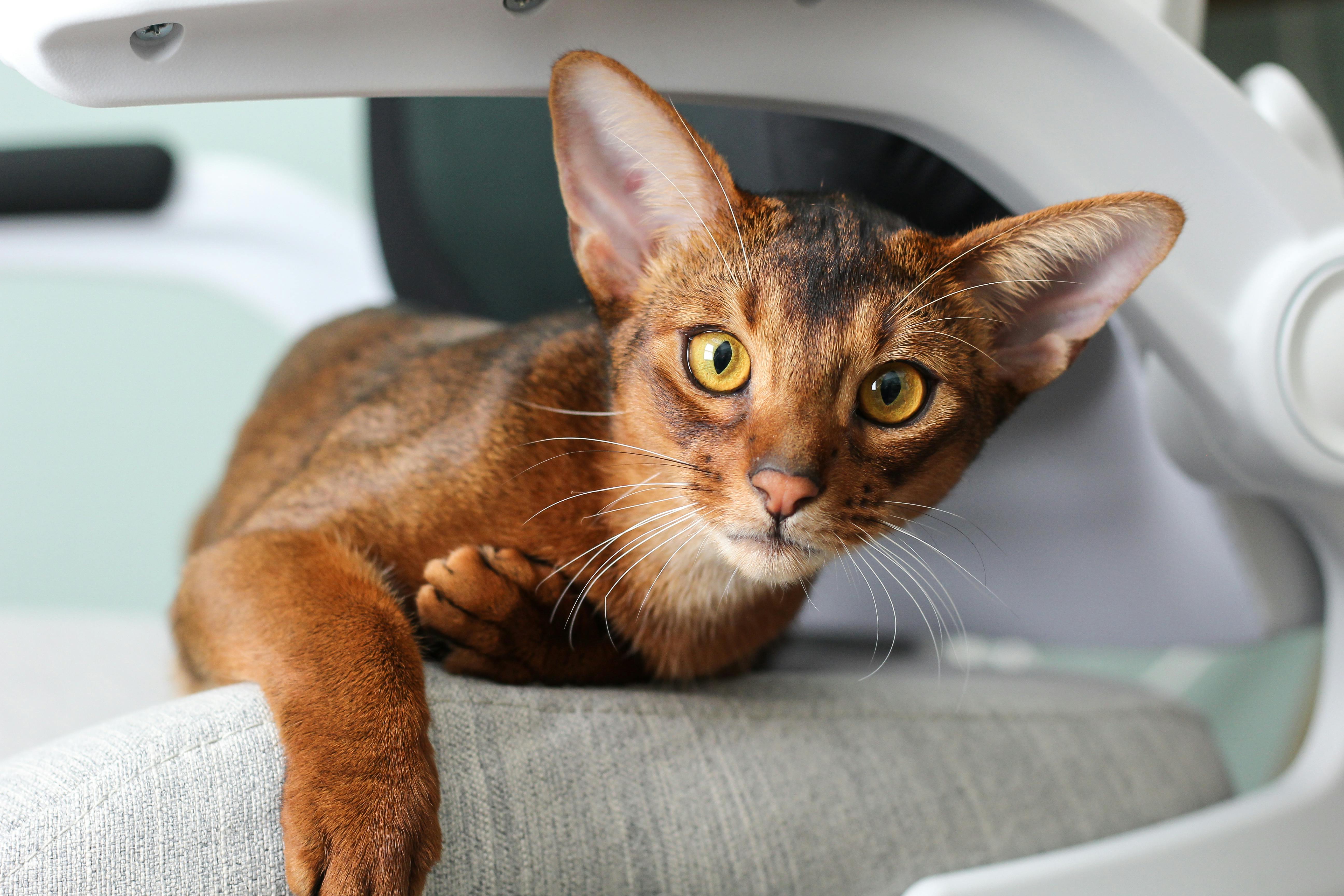
| OFFICIAL NAME | Abyssinian |
| COMMON NAME | Abyssinian |
| PET HEIGHT | 8 to 10 inches |
| PET WEIGHT | 8 to 12 pounds |
| LIFESPAN | 9 to 13 years |
| GOOD WITH | cats, dogs, families |
| TEMPERAMENT | sociable |
| INTELLIGENCE | high |
| SHEDDING AMOUNT | seasonal |
| PLAYFULNESS | high |
| ENERGY LEVEL | active |
| VOCAL LEVEL | when necessary |
| COAT LENGTH | short |
| COLORS | chocolate / brown / sable, fawn, red / orange |
| PATTERNS | tabby |
| OTHER TRAITS |
easy to groom, easy to train, friendly toward humans, friendly toward other pets, strong loyalty tendencies |
These kitties are a pleasure to train and are well-known for their unusual coat and love of outdoor activities. They are excellent climbers, always searching for the highest perch, thanks to their agility and curiosity. The Abyssinian is a superb option if you're looking for a feline companion who will excitedly accompany you on your adventures.
Abyssinian Appearance
Abyssinians are readily identified because of their orange-brown coat with black markings. Their bellies should be in close proportion to the rest of their bodies, and they have black tips to their tails. This breed's most common coat color is this unusual shade of "ruddy." Although the Cat Fancier's Association also accepts fawn, blue, and cinnamon coat tones, they are far less common than ruddy tones.
Abyssinian Personality
The calm temperament of the Abyssinian breed is widely known. An Abyssinian cat rarely meows or makes many vocalizations. But their quietness is not the same as shyness. These lively, outgoing cats are constantly eager to play or explore. If you have a male cat looking for a mate or a female cat in heat, their quiet manner may change. During the breeding season, even quieter breeds like the Abyssinian can have quite talkative male and female cats.
Abyssinian Living Needs
Like any other breed, Abyssinians must eat and exercise regularly to stay healthy. They are more likely to develop cardiomyopathy, a heart ailment that is treatable with a healthy diet. Heart issues may become more likely if vital nutrients like taurine aren't getting enough of them. To ensure the heart health of your Abyssinian, it's crucial to speak with your veterinarian about the ideal diet for your pet. These cats frequently consume their food rapidly and are highly active.
For this reason, letting them eat whenever they want—known as free feeding—can benefit them. Many cats would use this method instead of receiving larger meals once or twice daily. After consulting your veterinarian to determine your cat's proper daily feeding amount, you can modify it as necessary.
Abyssinian Care
The Abyssinian's unique "ticked" coat gives it an appearance that is a little untamed. Your cat will look and feel fantastic with this coat, which is simple to maintain—brush it once a week to get rid of dead skin and hair. The vet may advise routine baths with special shampoos if your Abyssinian has skin or coat problems. Still, otherwise, baths are usually not necessary. If their nails grow too long or thick or begin to catch on objects, you can cut them.
Abyssinian Health
In general, Abyssinian cats are generally healthy. They are not prone to many common health problems that other breeds of cats experience. Their cardiovascular and immune systems are usually robust. They may, however, be more vulnerable to certain hereditary eye disorders that result in blindness. Furthermore, like many other cat breeds, Abyssinians may be prone to obesity, but this is entirely avoidable. Ensure your Abyssinian gets plenty of opportunities for exercise, feed them the proper amount of food, and keep a regular eye on their weight to keep them healthy.
Abyssinian Exercise Requirements
Abyssinian cats do not like to curl up on laps! To stay happy and prevent boredom or behavioral problems, they require a sufficient amount of daily exercise and playtime. Give them shelves, cat trees, and other raised areas to explore because they enjoy being up high. To keep them occupied, have a variety of toys available, such as scratchers, jingle balls, pretend mice, and teaser toys. Leash training, catios, and supervised outdoor time are all excellent strategies for allowing your cat to enjoy the outdoors safely. Your cat will remain mentally and physically engaged with these activities.
Abyssinian Training
Many people consider Abyssinian cats to be among the easiest to train. They are excellent candidates for training exercises because of their intelligence and curiosity. Positive reinforcement can teach your Abyssinian tricks, how to walk on a leash and other typical dog training skills. These cats can even be trained to solve puzzles, jump through hoops, and maneuver through agility courses.
Abyssinian History
It is thought that the Abyssinian, a breed with a fascinating and rich history, arrived in Britain for the first time in 1868. The common belief is that the wife of an English Army officer brought it back from Abyssinia, which is now Ethiopia. However, modern genetic testing points to a different origin, most likely from Southeast Asia and the Indian Ocean coastal region. Whatever their origins, the fantastic journey of the Abyssinian began in 1872 when they were first documented in records at a cat show.
Abyssinian Fun Facts
Using the DNA of Cinnamon, a four-year-old Abyssinian cat, scientists produced the first domestic cat genome in 2007. This was a significant discovery.
Get insurance plans with wide-ranging coverage options








